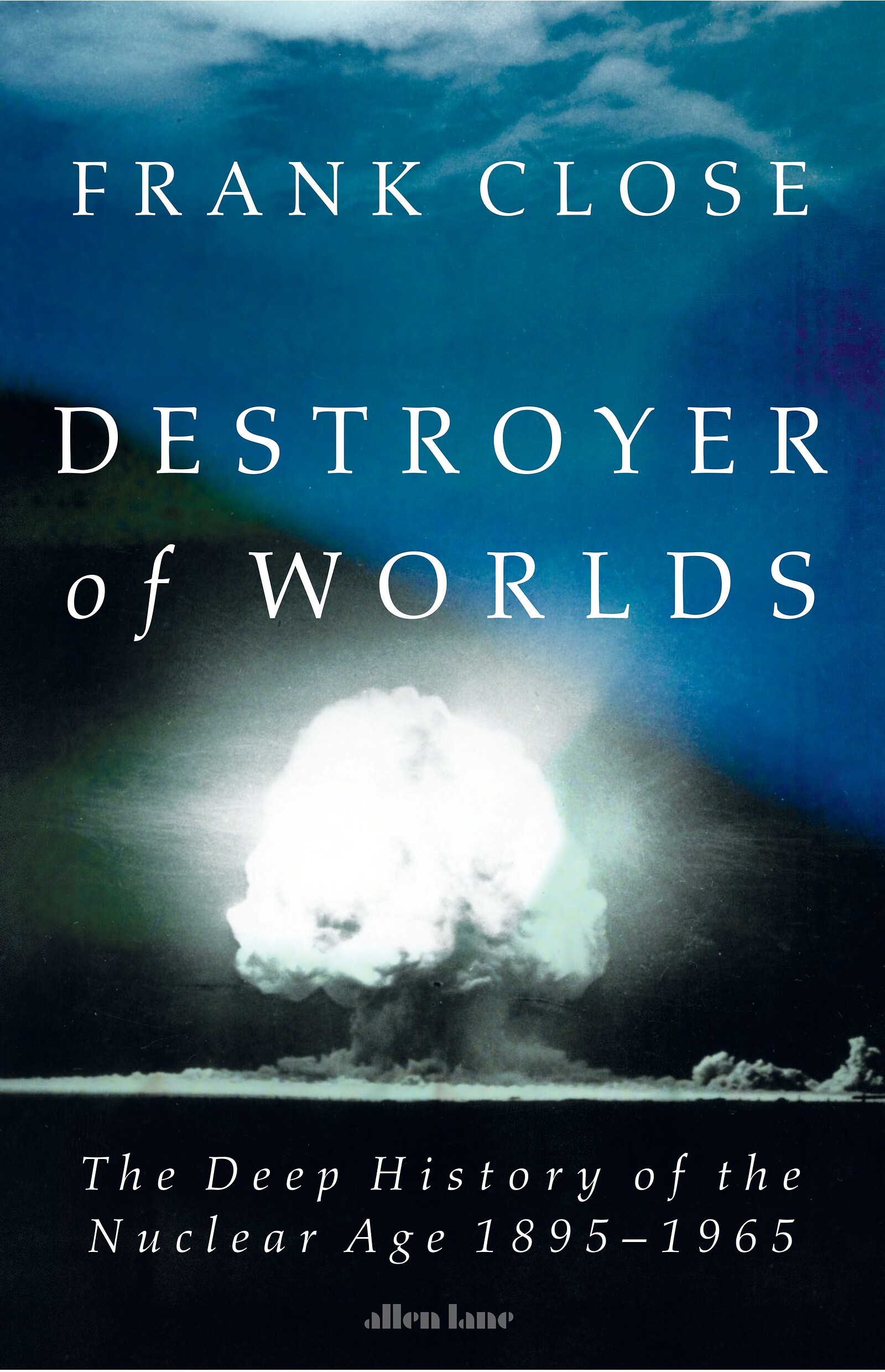
A event held at Bookhaus on Tuesday 24th June. The event starts at 18:00.
*Marking the 80th anniversary of the atom bomb, this is the first full history of the story of nuclear power and the extraordinary minds behind it*
Henry Becquerel’s accidental discovery, in Paris in 1896, of a faint smudge on a photographic plate sparked a chain of discoveries which would unleash the atomic age.
Destroyer of Worlds is the story of how pursuit of this hidden source of nuclear power, which began innocently and collaboratively, was overwhelmed by the politics of the 1930s, and following devastation of Hiroshima and Nagasaki opened the way to a still more terrible possibility: a thermonuclear bomb, the so-called “backyard weapon”, that could destroy all life on earth – from anywhere.
The story spans decades and continents, moving from Becquerel to Ernest Rutherford, the Cambridge-based, New Zealand scientist who first split the atom, expands to include Enrico Fermi in Rome, Otto Hahn and Lise Meitner in Berlin and the Joliot-Curies in Paris, leading to the appearance of Robert Oppenheimer before climaxing with increasingly horrifying developments in the USA and USSR. The roles of three remarkable women – Lise Meitner, Ida Noddack and Irene Curie – are re-evaluated, and there are new insights into the work of Ettore Majorana, Fermi’s mercurial but brilliant assistant, who mysteriously disappeared in 1938, possibly after foreseeing the explosive power of nuclear energy. Above all, this is a story of how knowledge is often advanced by personal convictions and relationships, an indeed by chance, in a remarkable way.
Professor Frank Close will be at bookhaus to discuss his book on this fascinating and pertinent subject. Tickets cost £6 and include a glass of wine or a soft drink and £5 off the book.
Frank Close is a Fellow of the Royal Society, Professor Emeritus of Theoretical Physics at Oxford University and Fellow Emeritus in Physics at Exeter College, Oxford, and formerly Head of the Theoretical Physics Division at the Rutherford Appleton Laboratory at Harwell and Head of Communications and Public Education at CERN. He is the author of The Infinity Puzzle: Quantum Field Theory and the Hunt for an Orderly Universe and most recently Trinity: The Treachery and Pursuit of the Most Dangerous Spy in History. He was awarded the Kelvin Medal of the Institute of Physics for his 'outstanding contributions to the public understanding of physics' in 1996, and the Royal Society Michael Faraday Prize for communicating science in 2013.
Entry requirements: no age restrictions
Entry requirements: no age restrictions
Tickets for similar Bristol events.



